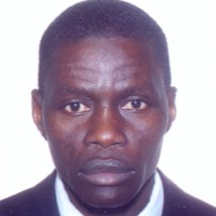International Journal of Intelligent Systems and Applications (IJISA)
IJISA Vol. 9, No. 1, 8 Jan. 2017
Cover page and Table of Contents: PDF (size: 651KB)
Medical Image Segmentation through Bat-Active Contour Algorithm
Full Text (PDF, 651KB), PP.30-36
Views: 0 Downloads: 0
Author(s)
Index Terms
Active Contour Method, Bat Algorithm, Jaccard Index, Dice Similarity
Abstract
In this research work, an improved active contour method called Bat-Active Contour Method (BA-ACM) using bat algorithm has been developed. The bat algorithm is incorporated in order to escape local minima entrapped into by the classical active contour method, stabilize contour (snake) movement and accurately, reach boundary concavity. Then, the developed Bat-Active Contour Method was applied to a dataset of medical images of the human heart, bone of knee and vertebra which were obtained from Auckland MRI Research Group (Cardiac Atlas Website), University of Auckland. Set of similarity metrics, including Jaccard index and Dice similarity measures were adopted to evaluate the performance of the developed algorithm. Jaccard index values of 0.9310, 0.9234 and 0.8947 and Dice similarity values of 0.8341, 0.8616 and 0.9138 were obtained from the human heart, vertebra and bone of knee images respectively. The results obtained show high similarity measures between BA-ACM algorithm and expert segmented images. Moreso, traditional ACM produced Jaccard index values 0.5873, 0.5601, 0.6009 and Dice similarity values of 0.5974, 0.6079, 0.6102 in the human heart, vertebra and bone of knee images respectively. The results obtained for traditional ACM show low similarity measures between it and expertly segmented images. It is evident from the results obtained that the developed algorithm performed better compared to the traditional ACM.
Cite This Paper
Rabiu O. Isah, Aliyu D. Usman, A. M. S. Tekanyi,"Medical Image Segmentation through Bat-Active Contour Algorithm", International Journal of Intelligent Systems and Applications(IJISA), Vol.9, No.1, pp.30-36, 2017. DOI:10.5815/ijisa.2017.01.03
Reference
[1]O. R. Vincent and O. Folorunso, ‘‘A Descriptive Algorithm for Sobel Image Edge Detection,’’ Proceedings of Informing Science & IT Education Conference, 2009, pp. 97-107.
[2]M, Kass, A, Witkin, and D. Terzopoulos, ‘‘Snakes: Active contour models,’’ International journal of computer vision, 1988, 1(4):321-331.
[3]X.-S, Yang, ‘‘A New Metaheuristic Bat-Inspired Algorithm, in: Nature Inspired Cooperative Strategies for Optimization (NISCO 2010) (Eds. J. R. Gonzalez et al.)’’, Studies in Computational Intelligence, Springer Berlin, 284, Springer, 2010, 65-74.
[4]A. Alihodzic, and M. Tuba, ‘‘Improved bat algorithm applied to multilevel image thresholding,’’ Hindawi Publishing Corporation the Scientific World Journal, 2014, 1-16. DOI:10.1155/2014/176718.
[5]V. Rajinikanth, J.P. Aashiha, and A. Atchaya, ‘‘Gray-level histogram based multilevel threshold selection with bat algorithm,’’ International Journal of Computer Applications, 2014, 93(16):1-8.
[6]X-S. Yang, and X. He, ‘‘Firefly algorithm: Recent advances and applications,’’ International Journal of Swarm Intelligence, 2013, 1(1):36–50. DOI: 10.1504/IJSI.2013.055801.
[7]I. Cruz-Aceves, J. G, Aviña-Cervantes, J. M, López-Hernández, and S. E. González-Reyna, ‘‘Multiple active contours driven by particle swarm optimization for cardiac medical image segmentation,’’ Computational and Mathematical Methods in Medicine, 2013a, 1-13.
[8]A. Sahoo, and S. Chandra, ‘‘L´evy-flight firefly algorithm based active contour model for medical image segmentation,’’ Sixth IEEE Conference on Contemporary Computing (IC3), 2014, 162, 159-164.
[9]F. Akram, J. H. Kim, H. U. Lim, and K. N. Choi, ‘‘Segmentation of intensity inhomogeneous brain MR images using active contours,’’ Computational and Mathematical Methods in Medicine, 2014, 1-14.
[10]S. Chack, and P. Sharma, ‘‘An improved region based active contour model for medical image segmentation,’’ International Journal of Signal Processing, Image Processing and Pattern Recognition, 2015, 8(1):115-124.
[11]H. Akbar, N. Suryana, and S. Sahib, ‘‘Controlling B-spline snake behaviour using particle swarm optimization’’. International Journal of Bioautomation, 2012, 16(3):179-186.
[12]A. Kumar, A. Wong, A. Mishra, D. A. Clausi, and, P. Fieguth, ‘‘Tensor vector field based active contours,’’ 2011.
[13]M. Talebi, A. Ayatollahi, and A. Kermani, ‘‘Medical ultrasound image segmentation using genetic active contour’’ Journal of Biomedical Science and Engineering, 2011, 4, 105-109.
[14]X-S. Yang, ‘‘Bat algorithm: Literature review and applications,’’ International Journal of Bio-Inspired Computation, 2013a, 5(3):141–149.
[15]I. Fister, D. Fister, and X-S. Yang, ‘‘A hybrid bat algorithm,’’ Elektrotehniˇski Vestnik, 2013, 80(1-2):1–7.
[16]X-S. Yang, ‘‘A new metaheuristic bat-inspired algorithm, in: Nature inspired cooperative strategies for optimization (NISCO 2013) (Eds. J. R. Gonzalez et al.),’’ Studies in Computational Intelligence, Springer Berlin, 284, Springer, 2013b, 65-74.
[17]P. Kaushik, and Y. Sharma, ‘‘Comparison of different image enhancement techniques based upon PSNR & MSE’’. International Journal of Applied Engineering Research, 2012, 7(11): 2010-2014.
[18]C. Ece, and M. U. Mullana, ‘‘Image quality assessment techniques pn spatial domain,’’ International Journal of Computer Science and Technology, 2011, 2(3):177-184.
[19]I. Cruz-Aceves, J. G. Avina-Cervantes, J. M. Lopez-Hernandez, H. Rostro-Gonzalez, C. H. Garcia-Capulin, M. Torres-Cisneros, and R. Guzman-Cabrera, ‘‘Multiple active contours guided by differential evolution for medical image segmentation,’’ Computational and Mathematical Methods in Medicine, 2013b, 1-14.


